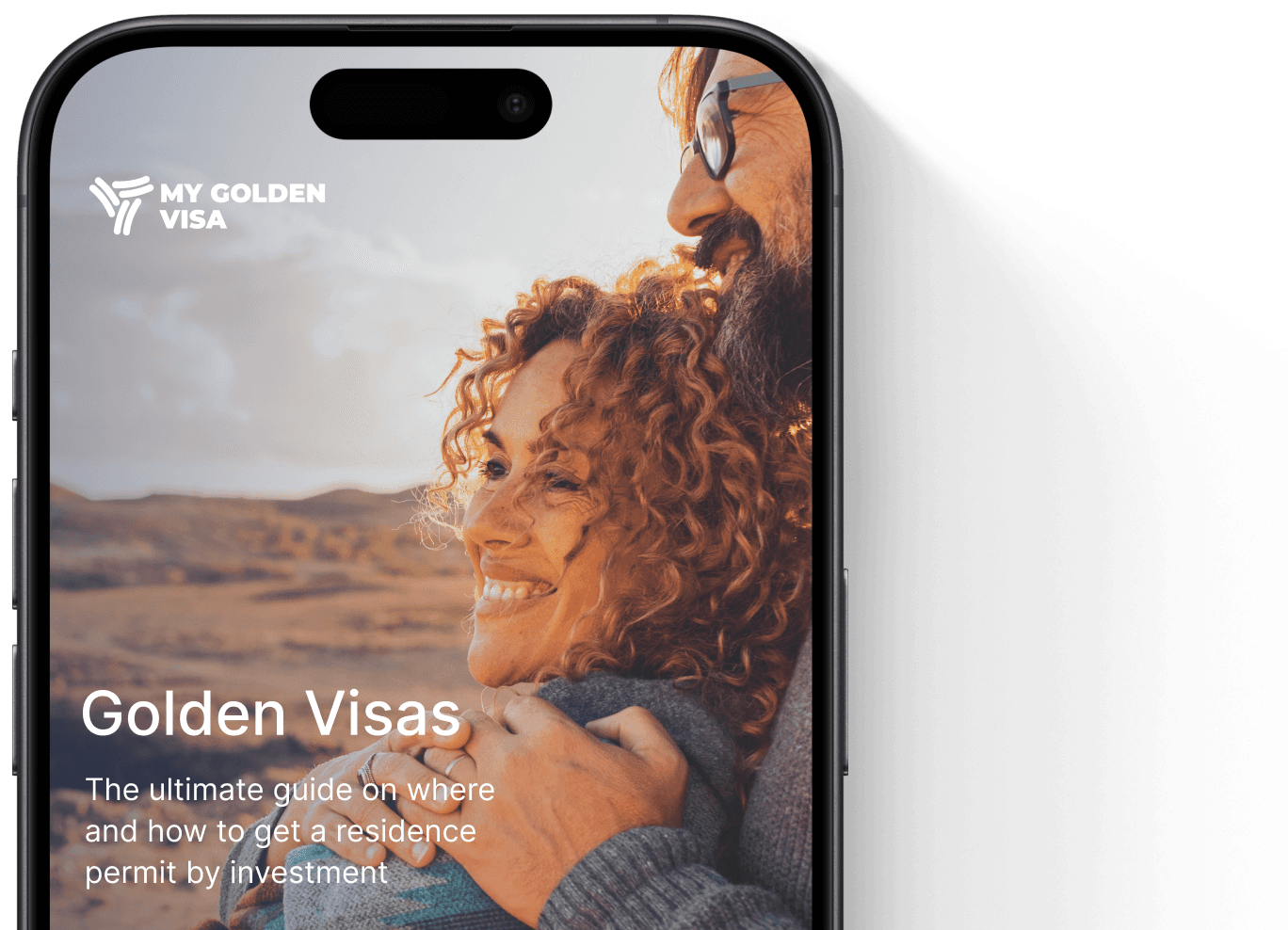Citizenship and residence permits refer to different legal statuses allowing a person to live in a specific country. However, they confer different rights and responsibilities upon individuals. For example, citizens can vote and run a public office, while ordinary residents are not allowed to do so.
If you decide to become a resident or a citizen in a new country, you can obtain the status by investment. Generally, it can be received in 2—8 months for more than $100,000.
This article will describe citizenship and residency statuses and how they differ.

Comparing Citizenship and Residence Statuses: A Detailed Guide
Share:
What Is a Residence Permit
Residency grants an individual the legal right to inhabit a particular country. It doesn’t equate to citizenship; it simply provides permission for an extended stay. Temporary residents typically enjoy rights permitting residence within their host nation under certain conditions like study or work engagements for a limited period.
Step-by-step Process of Obtaining a Residence Permit
Determine eligibility
Countries often have multiple categories for temporary residence, such as student visas, work permits, or visas for family reunification. Begin by identifying the type that aligns with your purpose for staying in the country.
Countries often have multiple categories for temporary residence, such as student visas, work permits, or visas for family reunification. Begin by identifying the type that aligns with your purpose for staying in the country.
Gather the required documents and complete an application form
Common documents include a valid passport, proof of the source of funds, a clean criminal record, and health insurance. Depending on the country and type of investment, you might also need business plans, property deeds, or other relevant paperwork.
You must also get the correct application form. It might be available online or at the embassy or consulate of the country.
Common documents include a valid passport, proof of the source of funds, a clean criminal record, and health insurance. Depending on the country and type of investment, you might also need business plans, property deeds, or other relevant paperwork.
You must also get the correct application form. It might be available online or at the embassy or consulate of the country.
Submit the application
Once the investment is made or is in process, you can submit your application for the residence permit, along with all required documentation and the appropriate processing fees.
Once the investment is made or is in process, you can submit your application for the residence permit, along with all required documentation and the appropriate processing fees.
Wait for approval
The reviewing agency or immigration authority will process your application. This period can vary widely from a few months to over a year, depending on the country and program.
The reviewing agency or immigration authority will process your application. This period can vary widely from a few months to over a year, depending on the country and program.
Receive the residence permit
Upon approval, you’ll be granted a residence permit, which might be a card or a visa sticker on your passport.
In some cases, you must collect your permit in person; in others, it can be sent to you by courier.
Upon approval, you’ll be granted a residence permit, which might be a card or a visa sticker on your passport.
In some cases, you must collect your permit in person; in others, it can be sent to you by courier.
Maintain the requirements
Some Golden Visa programs and countries have requirements like spending minimum time in the country each year.
Some Golden Visa programs and countries have requirements like spending minimum time in the country each year.
Renewal
To remain a resident, you must renew your permit every 1—3 years. The process is the same: gather requirements, file an application, and await approval.
You don’t need to make another investment but must maintain the initial one.
To remain a resident, you must renew your permit every 1—3 years. The process is the same: gather requirements, file an application, and await approval.
You don’t need to make another investment but must maintain the initial one.
Residence status comes with advantages, such as:
permission to live and work in the country;
access to healthcare and education;
opportunity to establish a business or invest in the local economy;
potential pathway to citizenship through naturalization.
Some countries have Golden Visas programs, also known as residence by investment programs. Under them, one can become a resident in 2—6 months for significant investment in the country’s economy.

Discover 9 most popular Golden Visa programs and choose the best one for your goals.
What Is a Permanent Residence
Lawful permanent residents possess indefinite authorization to reside within their chosen destination. They relish more extensive rights than temporary residents but still don’t hold full citizen privileges such as voting rights and passport eligibility. They remain exclusive benefits reserved only for citizens.
The process to obtain permanent residence depends on the country and your specific conditions. However, in general, it includes the following nine steps.
Step-by-step Process of Obtaining a Residence Permit
Determine eligibility
Countries often have multiple categories for temporary residence, such as student visas, work permits, or visas for family reunification. Begin by identifying the type that aligns with your purpose for staying in the country.
Gather the required documents and complete an application form
Common documents include a valid passport, proof of the source of funds, a clean criminal record, and health insurance. Depending on the country and type of investment, you might also need business plans, property deeds, or other relevant paperwork.
You must also get the correct application form. It might be available online or at the embassy or consulate of the country.
Submit the application
Once the investment is made or is in process, you can submit your application for the residence permit, along with all required documentation and the appropriate processing fees.
Wait for approval
The reviewing agency or immigration authority will process your application. This period can vary widely from a few months to over a year, depending on the country and program.
Receive the residence permit
Upon approval, you’ll be granted a residence permit, which might be a card or a visa sticker on your passport.
In some cases, you must collect your permit in person; in others, it can be sent to you by courier.
Maintain the requirements
Some Golden Visa programs and countries have requirements like spending minimum time in the country each year.
Renewal
To remain a resident, you must renew your permit every 1—3 years. The process is the same: gather requirements, file an application, and await approval.
You don’t need to make another investment but must maintain the initial one.
Permanent residency has several benefits over a temporary residence permit. They are:
unlimited stay;
no regular permits renewals;
a greater level of protection under the law;
direct path to citizenship.
An intriguing path towards obtaining permanent residency lies through investment programs such as Golden Visa, explicitly crafted for wealthy individuals seeking new horizons.
Demystifying the Concept of Citizenship
Citizenship is a legal status that embodies an individual’s membership within a sovereign state. This unique designation bestows individuals certain rights and protections under their country’s law.
Citizenship offers numerous benefits, including:
full political rights, such as the right to vote and participate in the democratic process;
access to social welfare programs and benefits;
greater travel freedom with a passport from the issuing country;
protection from deportation;
ability to sponsor family members for immigration.
An increasingly popular route to acquiring foreign nationality is through what we call Citizenship by Investment programs. These initiatives open doors for high-net-worth individuals to attain full-fledged citizen status via significant financial contributions to the host country’s economy.
Each CIP has rules and regulations, which must be strictly followed if applicants wish to obtain their desired nationality successfully. Thus, it becomes essential for potential investors to understand these stipulations and navigate them efficiently before proceeding with any application process.

Discover 9 most popular Golden Visa programs and choose the best one for your goals.
Differences between Citizenship and Residency
Several key differentiators come to light when we look at the landscape of citizenship versus residency. These include passport eligibility, voting rights, and other legal nuances.
Eligibility for a passport. A significant distinction between citizens and permanent residents is in passport entitlements. Being a citizen provides you with an automatic right to apply for your home country’s passport.
In contrast, lawful permanent residents do not enjoy this privilege. While they may be granted green cards, which facilitate reentry after traveling abroad without needing a visa, there are guidelines regarding travel regulations for green card holders. However, these guidelines do not extend towards obtaining an official national passport.
Right to vote. Voting rights are another significant difference between citizens and lawful permanent residents. In democratic nations like the United States or Schengen countries within Europe, only those who have full citizenship status get to participate in national elections.
Other differences. Residency and citizenship qualifications vary from nation to nation. Generally, citizenship requires a more extended period of residence, language proficiency, knowledge of the country’s history and culture, and passing a citizenship test. Residence status may require proof of financial stability, a job offer, or investment in the country.
Dual Citizenship and Its Benefits
Dual nationality, or dual or second citizenship, involves much more than having two passports. It’s a gateway that opens up many opportunities when multiple countries legally recognize you.
Economic and business opportunities. A key advantage lies in the realm of economic and business possibilities. A second passport can offer unrestricted work rights within another country or region. For instance, consider American citizens who also hold St Kitts & Nevis citizenship; they enjoy full employment privileges in their home country and within CARICOM (Caribbean Community) nations.
It equates to access to new markets for entrepreneurs or increased job flexibility for professionals internationally. Moreover, certain countries have attractive tax incentives explicitly designed to attract foreign investors. It could be beneficial depending on your financial circumstances.
Travel freedom. Beyond economics, there’s travel freedom at stake too. Dual citizens typically experience enhanced mobility across borders due to visa-free access granted through their multiple passports — less hassle with visa applications equals smoother international travels.
Social services access. Moving beyond these tangible benefits brings us to social services such as healthcare facilities and education systems some nations provide exclusively for their citizens.

Holding dual citizenship expands personal freedoms while offering potential fiscal upsides. However, it comes with obligations like mandatory military service or double taxation
Key Takeaways
Citizenship is a status allowing its holders to work, vote, and access social services within the country, and they have the responsibility to obey its laws.
A residence permit is an official authorization granted to a non-citizen, allowing them to live within a country for a specific period. While it permits residence, it doesn’t confer the full rights of citizenship.
A residence permit can be temporary or permanent. The first one is given for a certain period, for example, for one year and must be constantly renewed. Permanent residency is granted for life.
Both citizenship and residency statuses can be obtained by investment.
Antigua and Barbuda, Dominica, Grenada, St Kitts and Nevis, St Lucia, Turkey and Vanuatu offer passports by investment. Citizenship can be obtained in 2—4 months.
Countries that grant residency by investment are Cyprus, Greece, Italy, Malta, Portugal, Spain and the UAE. The average obtainment period is 4—6 months.
Some countries also allow their citizens to have dual citizenship.

Download our complete guide to learn everything you need about 9 popular Golden Visa programs.
Benefits
Investment options
Eligibility requirements
Processing times
Frequently Asked Questions
A resident lives in a country temporarily or permanently but doesn’t have all the rights of citizens. A citizen, however, enjoys full legal rights like voting and protections within their country.
Citizens enjoy more benefits, such as voting, running for office, and applying for passports. Residents can live and work there but with fewer privileges than citizens.
Second citizenship is a status meaning an individual is a citizen of more than one country simultaneously and has the rights and obligations of citizens in both countries.
The main difference between a residence permit and permanent residence is its validity period. A temporary residence permit is granted for a limited period, 1—2 years, for example, and needs to be renewed. Permanent residence is given for life.
One more thing is that you can apply for citizenship with permanent residence. Temporary residence requires you first to obtain PR and only then — citizenship.
Permanent residency is a document that allows one to reside in an EU country indefinitely. It can be obtained by investment only in Malta and Cyprus. Other EU countries with Golden Visas programs grant residence permits that can be changed to permanent residence after residing in a country for some time.
The fastest way to obtain permanent residence is to participate in Malta and Cyprus Golden Visas programs.
To obtain Cyprus PR one must invest €300,000+ in real estate, shares of Cypriot companies or securities.
Maltese permanent residency is granted for the investment of €150,000.
Caribbean countries offer the easiest ways to obtain a second citizenship. It can be gotten by investment of $100,000+ in 2—4 months.
Generally, it is hard to say which citizenship is the best as it depends on many factors. However, Caribbean countries' passports can be very appealing for several reasons such as an opportunity to get them by investment, and visa-free access to 140+ destinations worldwide.











